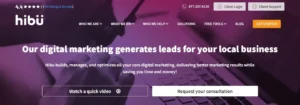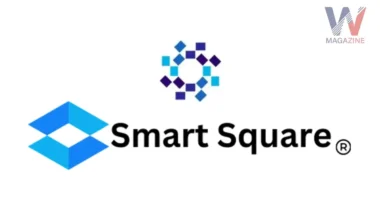Table of Contents
As the digital market continues to expand, more individuals are looking to invest in digital real estate. Unlike traditional real estate, this type of investment doesn’t require a large upfront cost and carries fewer risks.
If you’re considering entering this market, here’s what you should know and how you can get started.
What is digital real estate?
Digital real estate refers to virtual properties such as domain names, websites and blogs. Similar to traditional real estate, you can buy and sell these digital assets for profit.
Just like physical properties, there are individuals who make a living by trading domain names and websites. Some domain names have been sold for millions of dollars, and websites are often acquired for substantial sums. Earning money from digital real estate is indeed possible.
How to Invest in Digital Real Estate?
Investing in digital real estate doesn’t require advanced technical knowledge or web design experience. You can start without any prior experience using platforms like WordPress, which make website setup easy for beginners.
There are two main ways to invest in digital real estate: building a website from scratch or buying an established one.
Building a website from scratch is cost-effective but requires a significant amount of effort to make it profitable. It also takes time before you can sell it for a profit. On the other hand, buying an established website involves a higher upfront cost, but since the site is already generating income, you can recoup your investment faster.
“Investing in digital real estate does not require any prior experience. Website platforms make it simple to set up and manage a website in minutes.”
Where can I buy established websites?
If you’re ready to purchase an established website, there are several marketplaces where you can find them.
Flippa is a well-known platform for buying and selling websites. It features website auctions and provides details on a site’s monthly earnings and monetization methods.
When buying a website, it’s important to verify the information provided in the listings. Conduct thorough research to ensure the site’s legitimacy. Tools like SEMrush can help you analyze a website’s SEO, backlinks, and visitor traffic before making a purchase. Alternatively, you can hire a website brokerage firm like FE International to assist you in finding a suitable investment.
Note: When purchasing a website, conduct your own research to guarantee that the digital investment is worthwhile.
How to Create Your Own Website?
Another approach to investing in digital real estate is by creating your own website. Although this requires more initial effort to set up, it offers complete control over the domain and its content.
If you choose to build a website from the ground up, you can use one of the following website builders.
Wix
Wix provides over 800 responsive templates and customizable tools, making website design accessible to users of all experience levels. Beginners can use the platform’s setup wizard and drag-and-drop tools, while those with advanced skills can utilize Wix’s Dev Mode for custom coding.

Wix offers both free and paid plans, with the free plan displaying advertisements. Paid plans, ranging from $16 to $45 per month, are ad-free. The Unlimited, Pro, and VIP plans also include website analytics to track your site’s performance.
Hibu
Hibu is a full-service web design agency that specializes in creating tailored websites optimized for search engines and targeted audiences. They offer additional services such as managing listings, online reviews, reputation, and e-commerce sales.

Unlike software-based solutions, Hibu’s pricing is project-based. You’ll need to schedule a consultation with a Hibu representative to receive a custom price quote based on your specific needs. The company focuses on supporting small and midsize businesses, making their services more affordable.
Duda
Duda offers a platform that enables you to create mobile-responsive websites, which is a significant advantage in today’s market. The platform is user-friendly, featuring drag-and-drop elements and templates specifically designed for mobile devices. It also allows multiple users to collaborate on a single site, making it ideal for teams.

Duda’s pricing starts at $14 per month for the Basic plan (billed annually, or $19 month-to-month), $22 per month for the Team plan (billed annually, or $29 month-to-month), and $44 per month for the Agency plan (billed annually, or $59 month-to-month). You can try out Duda with a 14-day free trial, which includes all the features of the Team plan.
Weebly
Weebly offers an intuitive interface and a range of features that make building a website tailored to your needs straightforward. With over 50 website templates organized by categories and a drag-and-drop design, creating your site is easy. Additionally, Weebly provides an HTML editor for those who want to customize their code.
The platform also includes features like analytics, e-commerce capabilities, and marketing applications to enhance your site’s functionality.

Weebly offers both free and paid plans, allowing you to scale your website as your business grows. Paid plans range from $6 per month billed annually (or $9 month-to-month) to $26 per month billed annually (or $29 month-to-month). All paid plans come with a 30-day money-back guarantee and a free professional domain for one year. If you decide to downgrade or cancel your plan, you may be eligible for a partial refund.
DYK: Website design software is a self-service application that allows you to create your own websites. Web design services, on the other hand, are full-service businesses that provide website development, construction, and maintenance. These organizations generally provide extra services such as SEO, branding, and marketing.
How to Profit from Digital Real Estate?
After acquiring or creating your website, the key to profiting from digital real estate is to consistently create content that attracts visitors and generates traffic. Use Google’s Keyword Planner to come up with blog ideas based on popular search terms.
If you’re too busy to create content, consider hiring freelancers from platforms like Upwork to write for you. Once your website starts generating traffic, you can monetize it in several ways:
- Advertising: Sell ad space on your website or use an ad network like AdSense. You earn money whenever someone clicks on an ad.
- Affiliate marketing: Promote and sell products from other businesses. Earn a commission for each sale made through your affiliate link.
- Selling products: Create and sell your own products such as e-books, online courses, or software.
- Sponsored content: Brands may pay you to write blog posts promoting their products.
With time, your website may become profitable. You can then decide whether to sell it for a profit or continue developing it as a source of income. However, unlike stocks or real estate, the value of your digital real estate won’t increase over time unless you actively work on it. So, be prepared to put in the effort to make your website successful and follow Wordle Magazine to get the most out of the market.









